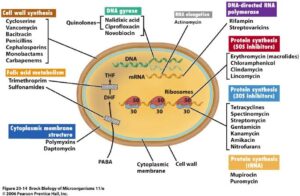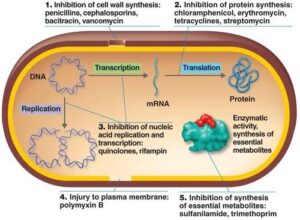Back to: MICROBIOLOGY 300 LEVEL
Welcome to class!
You’re doing something truly important by showing up again today! Learning about infectious diseases like plague, brucellosis, and listeriosis gives you the kind of knowledge that can save lives—especially here in Nigeria and across Africa, where these diseases can still pose real threats in certain settings. Today, we’ll focus not just on the bacteria that cause them, but on how these diseases affect people, how they spread, and how we can control them using good science and smart public health actions.
Plague, Brucellosis, Listeriosis
Plague
Plague is a serious disease caused by the bacterium Yersinia pestis. Though most people associate it with medieval Europe, it still exists today, including parts of Africa like the Democratic Republic of Congo and Madagascar.

Types of Plague:
Bubonic plague: The most common form. Causes painful swollen lymph nodes called “buboes”, high fever, chills, and weakness.
Septicaemic plague: When the bacteria enter the blood, causing bleeding, shock, and death if untreated.
Pneumonic plague: Affects the lungs and spreads from person to person through coughing or sneezing. This form is very dangerous and highly contagious.
How it spreads:
Usually through the bite of fleas that live on infected rodents, like rats.
Treatment:
Early antibiotic treatment (streptomycin, doxycycline) can save lives.
Prevention:
Rodent control, flea treatment for pets, and public awareness are essential.
Imagine a community in northern Nigeria with a rodent infestation. A child gets sick with fever and swollen lymph nodes. Rapid diagnosis and antibiotics from the nearest clinic prevent a bigger outbreak.
Brucellosis
This disease is caused by Brucella bacteria, which are passed from animals to humans. It is common in places where people consume unpasteurised milk or have close contact with livestock.
Symptoms:
Recurrent fever (undulating fever)
Muscle and joint pain
Fatigue and sweating
In severe cases, it may affect the liver, heart, or spine
How it spreads:
Through unpasteurised dairy products, raw meat, or direct contact with infected animals, especially goats, cows, and sheep.
Treatment:
Requires a long course of antibiotics, usually doxycycline and rifampicin.
Prevention:
Boil milk before drinking, cook meat properly, and wear gloves when handling animals.
A butcher in Ibadan who often handles raw goat meat without gloves starts to experience persistent fever and back pain. With the right antibiotics, he fully recovers after his diagnosis of brucellosis.
Listeriosis
Caused by Listeria monocytogenes, this is a foodborne illness that mainly affects pregnant women, newborns, the elderly, and people with weak immune systems.
Symptoms:
Fever, nausea, vomiting, and diarrhoea
In serious cases: meningitis, miscarriage, or stillbirth in pregnant women
How it spreads:
Through contaminated food like soft cheeses, unpasteurised milk, cold meats, and raw vegetables that haven’t been washed properly.
Treatment:
Ampicillin, sometimes combined with gentamicin.

Prevention:
Practise safe food handling, refrigerate food properly, and avoid risky foods during pregnancy.
Picture a pregnant woman in Port Harcourt who eats unpasteurised soft cheese from a street vendor. She falls ill with fever and nausea. At the hospital, doctors diagnose listeriosis and give her early treatment, protecting both mother and baby.
Summary
- Plague is spread by fleas from rats and causes buboes or lung infections.
- Brucellosis comes from infected animals or unpasteurised milk and causes fever and pain.
- Listeriosis is a foodborne illness that affects vulnerable people, especially during pregnancy.
- All three diseases are preventable and treatable with early intervention.
Evaluation
- What are the three forms of plague, and which one spreads between people?
- Name two ways brucellosis can be prevented in rural farming communities.
- Who is most at risk of listeriosis, and how can it be avoided?
Each lesson you complete is a step toward becoming the microbiologist our communities need. You have the power to change lives through your knowledge. Keep your curiosity burning and remember—Afrilearn is with you every step of the way. See you in the next class!
